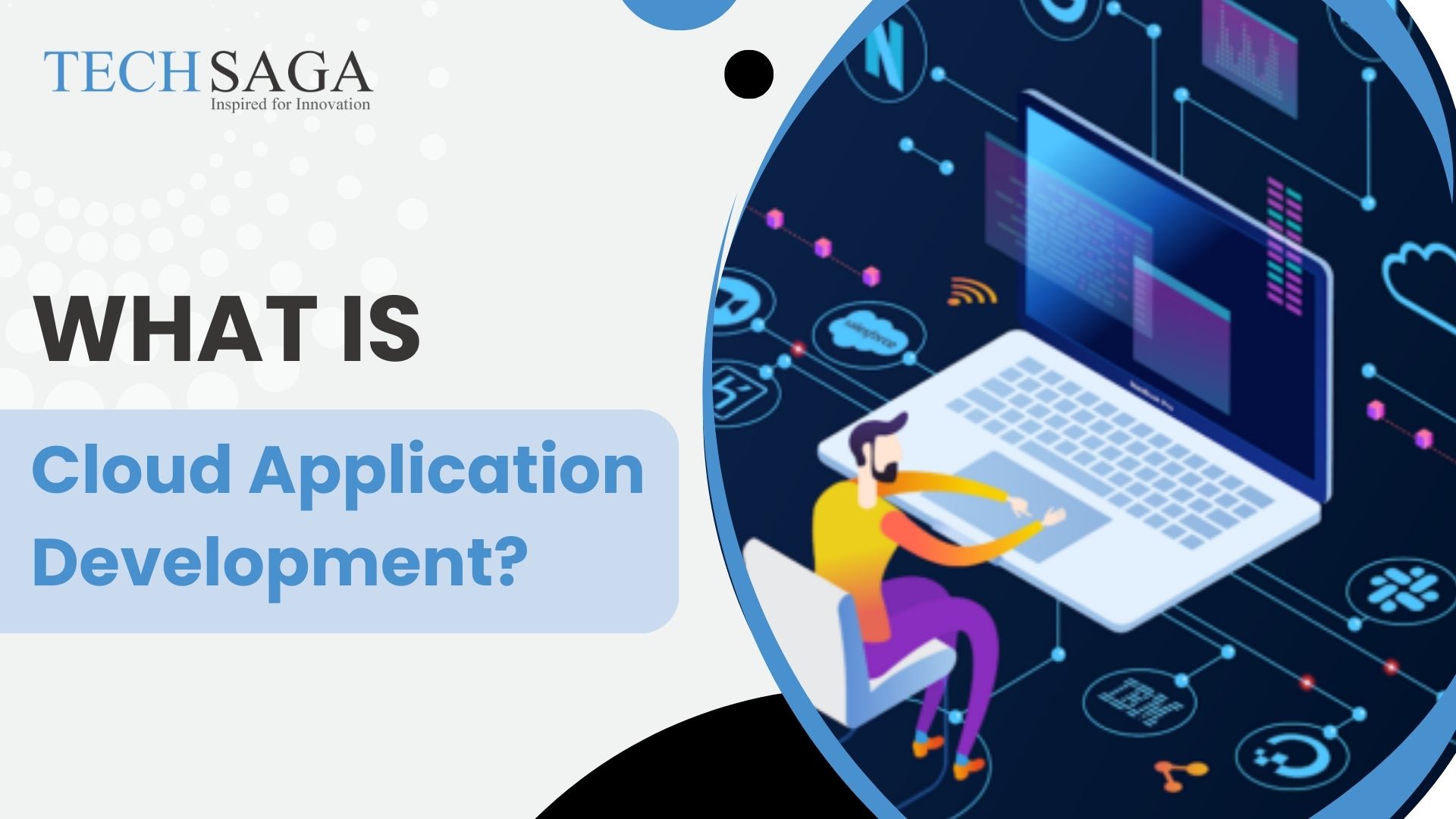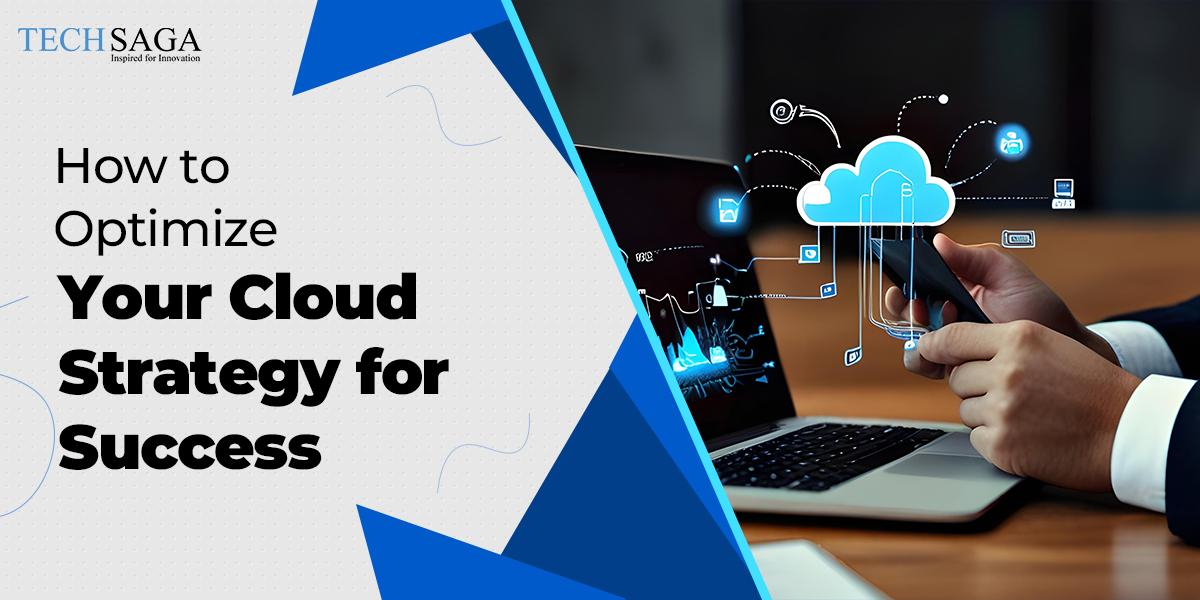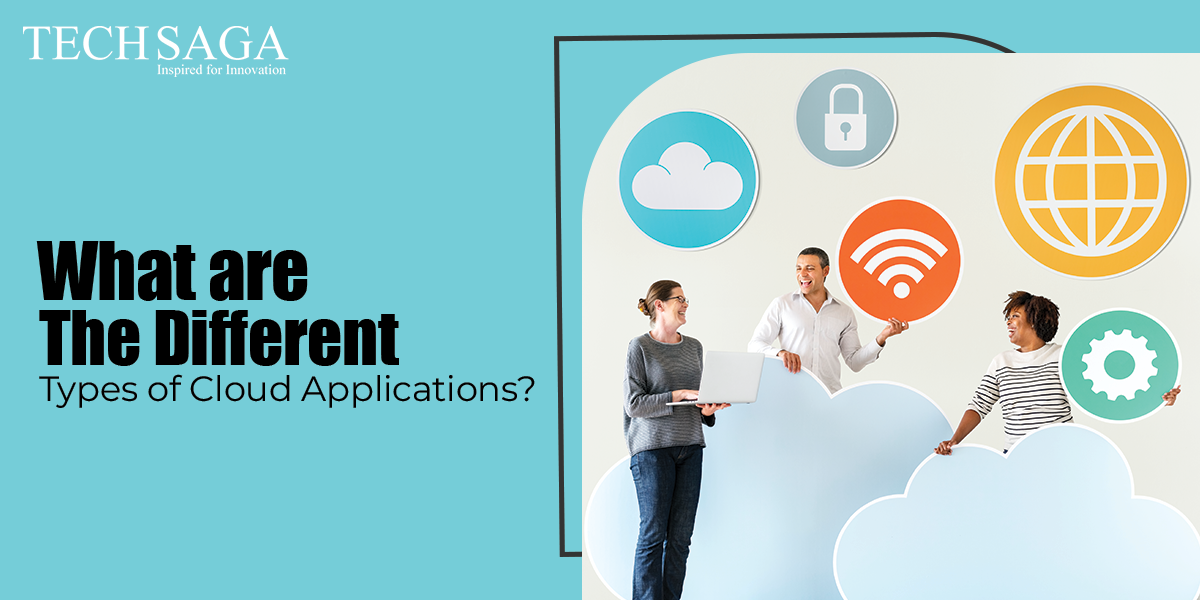Team Techsaga
Gain valuable insights and stay updated with the latest innovations through our engaging blog. Explore trends, technology advancements, and expert opinions to navigate the ever-evolving world of IT.
What Is Cloud Application Development?
This digitally evolving world is expecting every industry to innovate quickly, scale seamlessly, and operate efficiently globally. Therefore, to meet these expectations, the traditional software systems are often rigid and expensive to maintain. Consequently, comes the cloud applications development as the game-changer.
Cloud application development services are also becoming more and more popular among organisations, ranging from startups to Fortune corporations. This eventually builds scalable, secure, and cost-effective solutions. Additionally, the rapid increase in remote work, global digital transformation, and the demand for real-time data access have raised the number of companies offering cloud application development services worldwide.
However, what is cloud application development? To answer this question, we are here with this blog, which entails everything you need to know. So, have a look!
Understanding Cloud Applications Development
Cloud Application Development- Explained
Cloud application development refers to the process of designing, building, and deploying applications that operate in a cloud environment. Unlike traditional apps hosted on local servers or specific devices, cloud apps are hosted on cloud platforms (like AWS, Azure, or Google Cloud) and can be accessed over the internet.
This approach offers flexibility, scalability, and accessibility, allowing businesses to deliver robust services to users anytime, anywhere. Moreover, a cloud application development company focuses on creating software that leverages the power of distributed cloud infrastructure for enhanced performance and lower operational costs.
Types of Cloud Applications
Cloud apps generally fall into three categories:
- SaaS (Software as a Service): Apps hosted by a provider and delivered via the internet (e.g., Google Workspace, Dropbox).
- PaaS (Platform as a Service): A platform allowing developers to build applications without managing infrastructure (e.g., Heroku, Microsoft Azure).
- IaaS (Infrastructure as a Service): Permits virtualized computer resources (like AWS EC2 and Google Compute Engine) to be accessed online.
Why Businesses Are Turning to Cloud Applications Development
The shift toward cloud applications development isn’t just a trend—it’s a necessity driven by modern challenges and expectations. So, here’s why businesses are making the move:
1. Scalability at Its Best
Cloud applications scale effortlessly to accommodate increasing user demands. Whether your business experiences seasonal spikes or rapid growth, cloud platforms adjust resources automatically without compromising performance.
2. Cost Efficiency
With cloud application development services, companies only pay for what they use. There’s no need for heavy upfront investments in hardware or data centers. Therefore, this “pay-as-you-go” model significantly reduces capital expenditure.
3. Remote Accessibility
The post-pandemic world has normalized remote and hybrid work environments. Cloud applications ensure that employees, clients, and stakeholders can access critical tools and data securely from anywhere in the world.
4. Enhanced Collaboration
Most cloud-based tools support real-time collaboration. Teams across different time zones can work simultaneously on documents, applications, or systems, eventually boosting productivity and communication.
5. Security and Compliance
Contrary to popular belief, cloud apps are often more secure than on-premise systems. Top cloud application development companies implement advanced encryption, multi-factor authentication, and regular security updates to safeguard data.
Key Features of a Well-Designed Cloud Application
When developing a cloud app, certain core features are essential for delivering optimal performance and user experience:
a. Multi-Tenancy
Allows multiple users or organizations to share the same application instance, eventually reducing costs while maintaining data isolation.
b. High Availability
Designed to function continuously without failure, even during updates or outages. Additionally, failover and load balancing techniques are essential.
c. Auto-Scaling
Applications can automatically scale resources up or down depending on traffic or usage.
d. Disaster Recovery
Built-in backup and recovery options ensure minimal data loss and service downtime in case of system failure.
How Does Cloud Application Development Work?
Here’s a simplified breakdown of the cloud applications development process:
1. Requirement Analysis
The development team gathers business goals, user needs, and technical specifications. This stage also establishes the foundation for the project’s affordability and scope.
2. Choosing the Right Cloud Model
Based on the requirements, developers choose the best cloud deployment model—public, private, hybrid, or multi-cloud.
3. Designing the Architecture
The application is architected for scalability, security, and performance. This further includes choosing suitable microservices, databases, APIs, and storage solutions.
4. Development & Testing
Code is written and tested using Agile or DevOps methodologies. So, continuous integration and continuous delivery (CI/CD) pipelines speed up the release cycles.
5. Deployment & Monitoring
The chosen cloud environment is where the application is deployed. Further, tools like Prometheus, Grafana, or AWS CloudWatch are used for performance monitoring.
6. Maintenance & Optimization
Post-launch support includes bug fixing, feature updates, and performance optimization, eventually ensuring the application continues to deliver value.
Benefits of Hiring a Cloud Application Development Company
While some businesses have in-house teams, many prefer outsourcing to a specialized cloud application development company. Here’s why:
- Expertise: They bring years of experience and knowledge of the latest tools, trends, and security practices.
- Faster Time-to-Market: With ready-to-use frameworks and libraries, they speed up development cycles.
- Cost Savings: No need to hire, train, or manage large internal teams.
- Customization: Solutions that are specifically designed to meet your goals and industry.
- Support & Maintenance: Many firms offer ongoing support and updates to keep your app performing well.
Industries Benefiting from Cloud Application Development Services
Virtually every sector today uses cloud apps in some form. Some key industries include:
- Healthcare: Electronic Health Records (EHR), telemedicine, and patient management systems.
- E-Commerce: Scalable platforms, recommendation engines, and payment gateways.
- Finance: Online banking, fraud detection, and digital wallets.
- Education: Learning Management Systems (LMS), virtual classrooms, and course portals.
- Manufacturing: Supply chain automation, predictive maintenance, and real-time analytics.
Challenges in Cloud Application Development
Despite its benefits, there are a few things to think about:
- Data Privacy: Ensuring compliance with laws like GDPR or HIPAA.
- Vendor Lock-in: Getting too tied to one cloud provider can limit future flexibility.
- Latency Issues: If not designed well, users may experience lag in accessing services.
- Integration with Legacy Systems: Connecting old infrastructure with new cloud services can be complex.
Therefore, working with experienced cloud application development companies can help you overcome these hurdles effectively.
Future of Cloud Applications Development
The future looks incredibly promising. Emerging technologies like AI, machine learning, edge computing, and serverless architecture are eventually making cloud apps smarter, faster, and more resilient.
By 2025, it’s expected that over 95% of new digital workloads will be deployed on cloud-native platforms. This isn’t just evolution—it’s a digital revolution.
Final Thoughts
So, in this 21st century, cloud application development is the foundation of the digital transformation. Cloud applications development offers a path to agility, innovation, and global reach. Furthermore, working with a reliable cloud application development company ensures the performance, security, and scalability of the app.
Techsaga provides scalable and reliable cloud application development services according to your business needs. Furthermore, with our expertise and years of experience in modern cloud platforms like AWS, Azure, and Google Cloud, we help you build secure and high-performance applications.
So, ready to transform your idea into a powerful cloud-based solution? Get in touch with us today.




